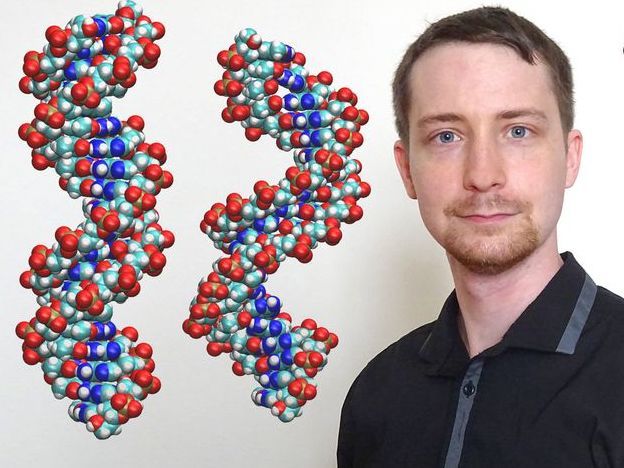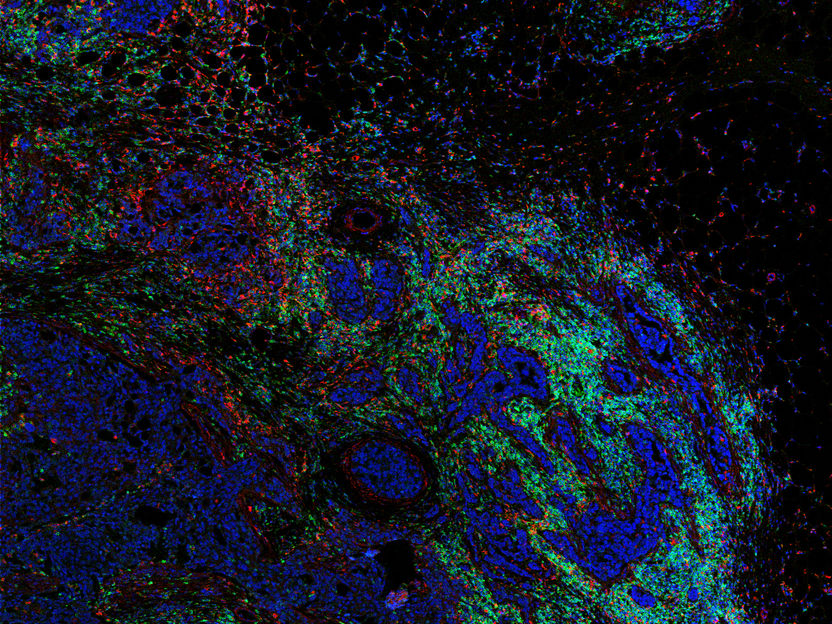The role of T-cells in SARS-CoV-2 virus defense
Our immune system can efficiently fend off viral diseases. Two types of immune cells play an important role in this process: The T-cells, which firstly can directly destroy virus-infected cells and secondly enable the formation of efficient, virus-neutralizing antibodies by B-cells. These two cell types also play a crucial role in the immune defense against SARS-CoV-2 infection. Whereas antibody tests are already routinely performed, only little is known about the T-cell response against SARS-CoV-2 so far.

Symbolic image
PabitraKaity, pixabay.com
The research group of PD Dr. Juliane Walz at the Clinical Cooperation Unit Translational Immunology (KKE) of the University Hospital Tübingen and the Department of Immunology of the Interfaculty Institute for Cell Biology in Tübingen now succeeded in identifying the target structures (so-called T cell epitopes) for the T-cell response against SARS-CoV-2. For this work, now published in the journal Nature Immunology, more than 180 volunteers were analyzed after convalescence from COVID-19. The T-cell epitopes identified in the study enabled the detection of SARS-CoV-2 T-cell responses in 100 percent of convalescent donors after infection. This was also true for patients in whom no antibody response could be detected.
Previous experience with two other corona viruses - SARS-CoV-1 and MERS-CoV-2 - as well as initial reports from convalescents’ after COVID-19 suggests that T-cell responses may also play a significant role in the defense against SARS-CoV-2, as is the case with all other viral infections. To characterize these SARS-CoV-2-directed T-cell responses the identification of the parts of the virus, so-called epitopes, which are recognized by the T-cells is fundamental. "These epitopes are not only important for the investigation and diagnosis of SARS-CoV-2 immunity, but may also represent the basis for the development of vaccines," says research group leader Juliane Walz.
In addition, the study, which was financed by the German Federal Ministry of Education and Research’s special funding line COVID-19, analyzed donor blood samples which were collected before the outbreak of the pandemic and thus had no contact with SARS-CoV-2. Strikingly, small amounts of SARS-CoV-2-directed T-cells, which recognize virus components, were identified in 81 percent of these unexposed donors. This could be due to previous contact of the donors with other human common cold corona viruses (HCoV-OC43, HCoV-229E, HCoV-NL63 and HCoV- HKU1) and sequence similarities of the SARS-CoV-2 T-cell epitopes with these HCoVs.
However, such cross-reactive T-cell detection is not equivalent to immunity against SARS-CoV-2: "The effect these preexisting cross-reactive SARS-CoV-2 T-cell responses in 81 percent of the population will be investigated further prospective studies," commented Juliane Walz.
Based on the findings of this study, the team of KKE (Medical Director: Prof. Dr. Helmut Salih) together with the Immunology (Director: Prof. Dr. Hans-Georg Rammensee) is currently developing a first clinical study, which will investigate a prophylactic vaccine against SARS-CoV-2, consisting of the here identified T-cell epitopes. This approach, which primarily aims at inducing T-cell responses against SARS-CoV-2, is further supported by first "long-term data" of Walz research group. First unpublished data of a follow-up study of the COVID-19 convalescent cohort - now six months after infection – still detects strong and even increasing T-cell responses against SARS-CoV-2, whereas the antibody responses, especially against the so-called spike protein, already showed a significant decrease.
Original publication
Other news from the department science

Get the life science industry in your inbox
By submitting this form you agree that LUMITOS AG will send you the newsletter(s) selected above by email. Your data will not be passed on to third parties. Your data will be stored and processed in accordance with our data protection regulations. LUMITOS may contact you by email for the purpose of advertising or market and opinion surveys. You can revoke your consent at any time without giving reasons to LUMITOS AG, Ernst-Augustin-Str. 2, 12489 Berlin, Germany or by e-mail at revoke@lumitos.com with effect for the future. In addition, each email contains a link to unsubscribe from the corresponding newsletter.
Most read news
More news from our other portals
Last viewed contents
Category:Antiparasitic_agents

The Surprising Stretching Behaviour of DNA - What happens when you pull a DNA molecule? It behaves quite differently than we are used to from macroscopic objects



















































